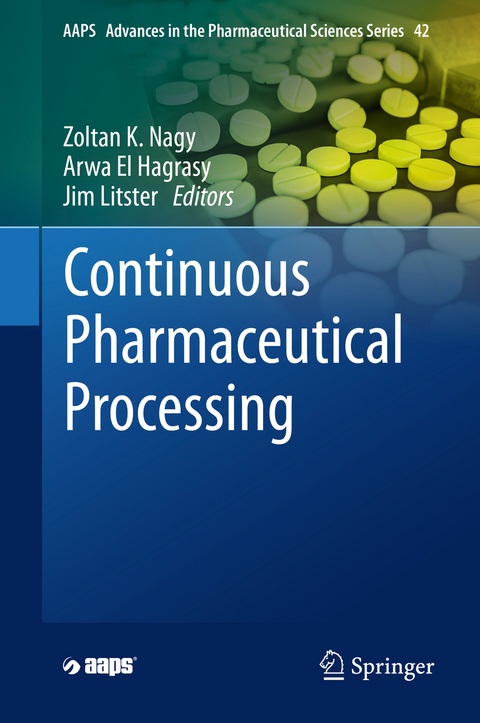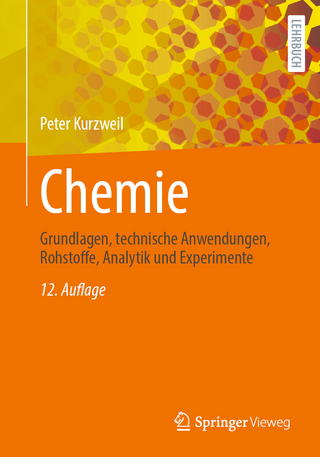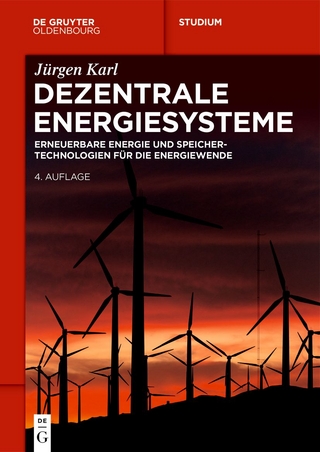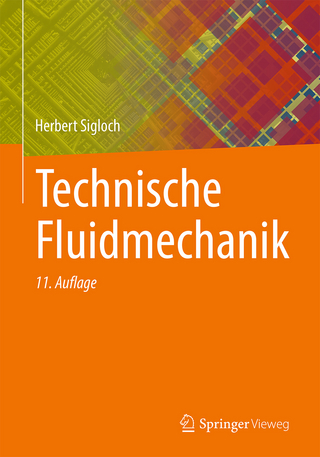
Continuous Pharmaceutical Processing
Springer International Publishing (Verlag)
978-3-030-41523-5 (ISBN)
Our aim from publishing this book is to make it a valuable reference for readers interested in this topic, with a desire to gain a fundamental understanding of engineering principles and mechanistic studies utilized in understanding and developing continuous processes. In addition, our advanced readers and practitioners in this field will find that the technical content of Continuous Pharmaceutical Processing is at the forefront of recent technological advances, with coverage of future prospects and challenges for this technology.
Zoltan K Nagy is a Professor of Chemical Engineering in the Davidson School of Chemical Engineering at Purdue University, USA and holds a research professor position at Loughborough University, UK. His research focuses on pharmaceutical systems engineering, advanced process control, crystallization modeling and control approaches and advanced control of particulate systems. He is an international expert in process intensification and advanced control application in integrated batch and continuous pharmaceutical manufacturing systems. He has received awards in the areas of crystallization and control from IEEE, IFAC, European Federation of Chemical Engineering, Royal Academy of Engineering and the European Research Council and he was the recipient of the AIChE's Excellence in Process Development Research Award (2018) and the Pharmaceutical Discovery Development and Manufacturing (PD2M) Forum Award for Outstanding Contribution to QbD for Drug Substance (2019). Arwa El Hagrasy is currently Acting Quality Assessment Lead, Office of Pharmaceutical Manufacturing Assessment, OPQ, CDER, FDA. Arwa has been with FDA for over 6 years and has reviewed a wide variety of drug product applications submitted to the Agency, including those implementing emerging technologies and advanced pharmaceutical manufacturing. Arwa has vast experience in industry and academia, with focus on the implementation of process analytical technology tools and continuous manufacturing in the pharmaceutical industry. Arwa received her B.S. in Pharmaceutical Sciences from Cairo University, Egypt, her Ph.D. in Pharmaceutical Sciences from Duquesne University in Pittsburgh, and did a post-doctoral appointment in the Chemical Engineering Department at Purdue University. Jim Litster is Professor and Head of the Chemical and Biological Engineering Department at the University of Sheffield, following previous academic appointments at Purdue University (2007-2015) and The University of Queensland (1987-2007). His research area is Particulate Products and Processes focusing on production of particles and particulate delivery forms with well controlled size and morphology from sub-micron to millimeter scale using processes such as wet granulation, crystallization and spherical agglomeration. He is an international leading expert on wet granulation with over 30 years experience in the field. A major portion of his current research is in support of continuous manufacturing of pharmaceutical dosage forms. Jim is a Fellow of the Australian Academy of Technological Sciences and Engineering. He has received several awards internationally for his work, including the Pharmaceutical Discovery, Development and Manufacturing Forum Award from the AIChE in 2015.
Basic Principles of Continuous Manufacturing.- Continuous Reactors for Pharmaceutical Manufacturing.- Understanding Residence Time, RTD, and Impact of Surge Vessels.- Practical Considerations for Continuous Drug Substance Manufacturing.- Continuous Crystallization: Equipment and Operation.- Continuous Feeding-Blending in Pharmaceutical Continuous Manufacturing.- Recent Progress in Roll Compaction Process Development for Pharmaceutical Solid Dosage Form Manufacture.- Continuous wet granulation processes.- Fluidized Bed Drying.- Statistical Methods in Quality by Design and Process Analytical Technologies for continuous processes to enable real-time release.- Active Process Control in Pharmaceutical Continuous Manufacturing-The Quality by Control (QbC) Paradigm.- Real-time Optimization in Pharmaceutical Manufacturing.- Safety Guidelines for Continuous Chemistry Experimental Work in the Laboratory.- Evaluating the Busieness/Supply Chain Benefits of Continuous Processing in Pharmaceuticals.- Regulatory Considerations for Continuous Manufacturing.
| Erscheinungsdatum | 12.06.2020 |
|---|---|
| Reihe/Serie | AAPS Advances in the Pharmaceutical Sciences Series |
| Zusatzinfo | VIII, 541 p. 248 illus., 189 illus. in color. |
| Verlagsort | Cham |
| Sprache | englisch |
| Maße | 155 x 235 mm |
| Gewicht | 986 g |
| Themenwelt | Medizin / Pharmazie ► Pharmazie |
| Naturwissenschaften ► Chemie ► Technische Chemie | |
| Technik | |
| Schlagworte | Continuous Manufacturing • Continuous Pharmaceutical Processing • Drug Product Manufacturing • Drug Substance Manufacturing • Pharmaceutical manufacturing • pharmaceuticals • process analytical technology • Quality by Control • Quality by Design |
| ISBN-10 | 3-030-41523-6 / 3030415236 |
| ISBN-13 | 978-3-030-41523-5 / 9783030415235 |
| Zustand | Neuware |
| Informationen gemäß Produktsicherheitsverordnung (GPSR) | |
| Haben Sie eine Frage zum Produkt? |
aus dem Bereich


